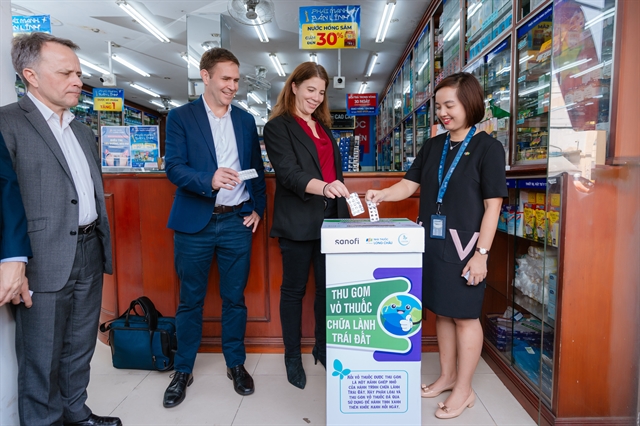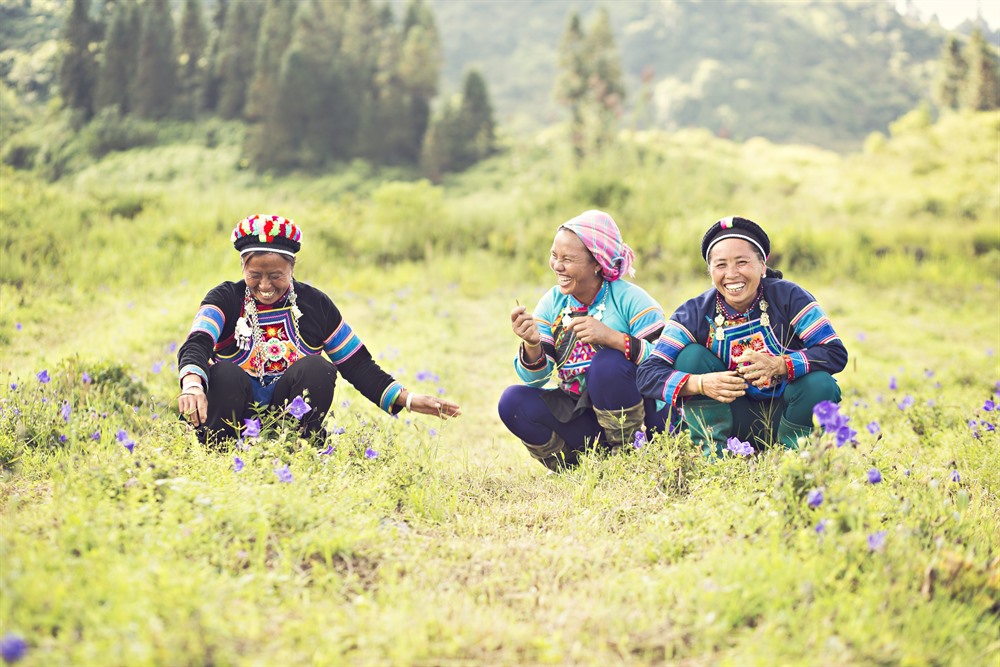 bizhub
bizhub

There is a growing trend for green consumption in Việt Nam. Although this trend might be common in foreign countries, it has just recently emerged in the country, raising people’s awareness about environment issues.
 |
| A part of platycodon garden, which is being grown and produced under BioTrade standards by Phù Lá ethnic minority people in the northern province of Hà Giang. The roots of platycodon is a main ingredient of Ích Nhi cold-cough syrup. — Photo Biotrade.vn |
HÀ NỘI — There is a growing trend for green consumption in Việt Nam. Although this trend might be common in foreign countries, it has just recently emerged in the country, raising people’s awareness about environment issues.
In Việt Nam, which is a rapidly growing country with life and work pressures, people yearn to be healthy. Nothing wrong with that. But what is wrong is that many people have let themselves become selfish, looking forward to being healthy without caring that what they do can be harmful to the environment and biodiversity.
Meanwhile, in developed countries that have entered the post-industrial era, people always want their money not only to bring benefits but also happiness to producers and distributors as well as contributing to protecting nature, fairness and human rights. They are willing to pay a higher price for a FSC – a global forest certification system allowing consumers to identify, purchase and use wood, paper and other forest products produced from well-managed forests and/or recycled materials; for FairTrade – an institutional arrangement designed to help producers in developing countries achieve better trading conditions. Members of the fair trade movement advocate the payment of higher prices to exporters, as well as improved social and environmental standards; and for UTZ, the label and programme for sustainable farming.
The BioTrade project in Việt Nam is funded by the European Union, aiming at introducing the concept of BioTrade to the Vietnamese market.
The principles of BioTrade include conservation of biodiversity, fair and equitable sharing of benefits derived from the use of biodiversity; socio-economic sustainability; and transparency in production process.
The BioTrade products range from food, spices, cosmetics, essential oils, to healthcare. The making of these products does not cause harm to the environment but brings about socio-economic benefits to local communities where they are sourced.
The products labeled BioTrade in Việt Nam are diversified. They include various herbal teas such as HerbEco helping reduce blood sugar, preventing and minimising the complications of diabetes, artichoke teas supporting treatment of liver function, and Ích Nhi herbal cold-cough syrup for new-borns and infants, in addition to supplementary foods and spices.
People have said ‘no’ to fake goods, to dirty food, to brands that violate moral values. In comparison with the last ten years, many consumers have become much more knowledgeable to check the number of production batches, the expiration date, to read the ingredients and the quality criteria, and to search for organic sources.
Sooner or later it will come to a time for all to reach responsible consumption. When the time comes, manufacturers will be encouraged to work together to create a new industry - a green and humane industry.
For more detailed information about Vietnamese herbal manufacturers committed to sustainable production under BioTrade standards, please visit www.biotrade.com.vn<https://www




